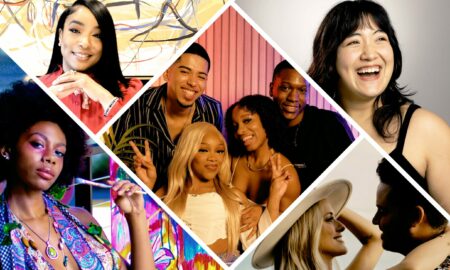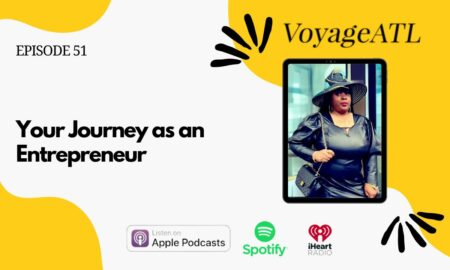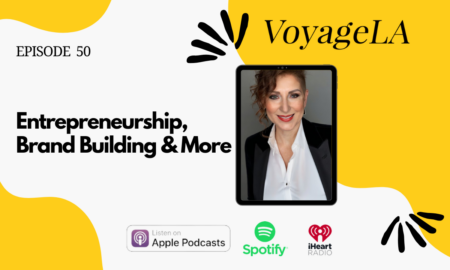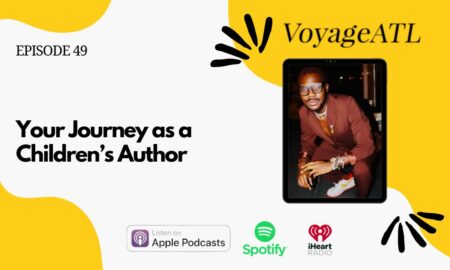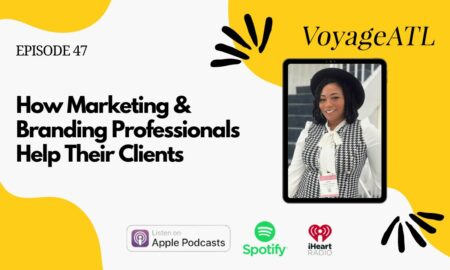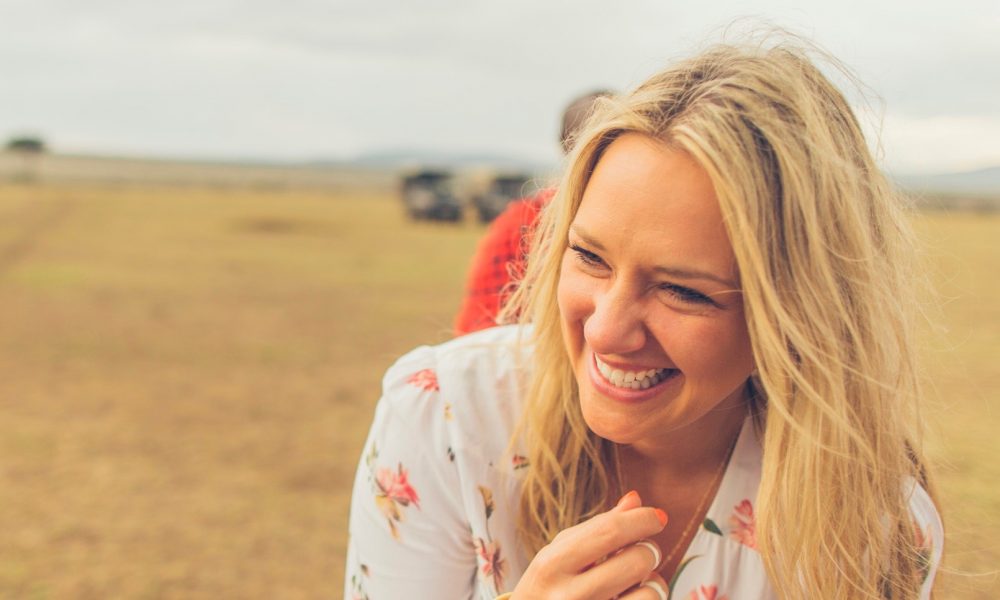

Today we’d like to introduce you to Sarah Buchanan.
Sarah, let’s start with your story. We’d love to hear how you got started and how the journey has been so far.
I graduated from Georgia State with a degree in International Development and I’ve been working in East Africa since 2009.
On May 12, 2012, my now-husband, James, and I started the Kula Project. We began with this belief that poverty was not a lack money but a lack of opportunity, and if organizations could invest in the ideas and businesses of people living in poverty, together, they could change the future for generations to come. So, we set out to do just that, but the first two years brought so many failures and hard lessons, and it wasn’t until January of 2014 that we started to get a grasp on what we were trying to do.
James and I spent a month in Rwanda listening and learning from these incredible people that had survived things we couldn’t even imagine to be true, and we knew that Rwanda was the place we were supposed to be. We made the decision to complete an then close our (failing) projects in Kenya, Swaziland, and Jamaica, and we focused all of our efforts on this tiny, beautiful country in the heart of Africa. Since then, Kula has worked solely in Rwanda alongside the most remarkable women.
Overall, has it been relatively smooth? If not, what were some of the struggles along the way?
Years failed, I am not exaggerating. In fact, I’m probably being a little generous.
On the personal side, trying to build a failing non-profit start-up with your significant other was really difficult, and it almost tore us a part. In the summer of 2014, James and I decided he would step out of the organization because working together was going to be the end of us and kula, and it took a long time to heal from that. We did end up eloping on safari in Kenya last year, though, so it all worked out.
Kula itself is a beautiful, daily struggle. One of my mentors told me, “Your job is to create new problems,” and I responded with, “Well if that’s the case, no one could do this job better than me.” We have made and continue to make mistakes, but we are finally at a point where we have more wins than failures, and that is very exciting, but it’s taken some serious team resilience to get here.
We’ve had really bad hires, terrible American partnerships that almost brought our entire organization down, a cultural translation error that resulted in a several-thousand-dollar mistake. We’ve had fake checks, landslides (literally), bouts of malaria, and a million flat tires, but that’s all part of it, I guess.
A start-up is hard no matter what. A start-up that doesn’t bring in revenue is very hard, and one that works across the ocean is super hard, but we make it happen because we believe in these people with every single thing that we have.
Alright – so let’s talk business. Tell us about kula project – what should we know?
Kula is a non-profit organization that is eradicating poverty through the development of entrepreneurs in Rwanda.
Through a 15-month fellowship that provides industry training, business investment, and life & leadership skills, our fellows are empowered to build profitable businesses, raise healthy families, and provide an education for their children. We believe that charity will not eradicate poverty, business will. That’s why we develop and invest in entrepreneurs. We believe in the power of mentorship, and that just because they live in a developing country doesn’t mean business leaders don’t need or deserve coaching.
We believe in investment over loans because we want our people to know we think their idea is good, and we are going to ride it out with them until they don’t need us anymore.
I think we are known for how much care about the people we work with, and people see that through the way we talk about them and portray them. We work really hard to change how people picture those living in poverty. We have a rule that we are not allowed to show suffering because, while there of course if suffering, when you are sitting in the home of Vestine, for example, you don’t hear the suffering without hearing the hope. She is telling you the love story of her and husband and that while it “can be sad” that they met in a refugee camp, it’s actually a beautiful story because they got married in one, too.
Or she is telling you about her daughter, Valentine, that wants to be an OBGYN because while she had to watch as her mother struggled through multiple miscarriages, she wants to learn how she can prevent other women from having to go through the same thing.
The conversation always makes its way to her hope for the future- for herself, her family, and her country. Knowing Vestine and her family, and families like hers is what we are most proud of because it is why we are able to make our work better, to refine what’s not working and invest more in what is.
Any shoutouts? Who else deserves credit in this story – who has played a meaningful role?
Oh gosh, there’s no way any of this would have happened without people that deserve more credit than I do.
First, I’d say James, my husband and kula’s co-founder, deserves most of it. I call him our silent hero. He has not only enabled kula to grow, but he has made it possible for me to be the one to grow it. He was the one who had to step aside, get an actual paying job so I could quit my night job as a bartender, and has been patient while I have emotional breakdown after emotional breakdown when I’m tired, felling overwhelmed, inadequate, or all of those things at same time. Not once did he express frustration when I would be in Africa for 6-8 weeks at a time, and he was always there with tacos and my favorite wine the moment I got home. Kula would’ve ceased to exist 4 years ago if it weren’t for him.
Then, there is Lindsay. She is our Director of Communications, but we joke she is our “Director of A Lot of Things.” She came to us as an intern and I hired her 20 min into the interview. Six months later, she joined as a full-time employee, and a month later she had to hold her check because we didn’t have enough to pay her. Almost three years later, she is my right and left hand. In a very literal way, she finishes my sentences, knows what I’m trying to say, even when I don’t, but more than anything, she loves our people. She loves Rwanda. She loves this work. Lindsay has grown so much in her three years, and it’s been an absolute joy to watch as her voice becomes louder and louder.
As far as our supporters go, our Board Chair, Ryan Pernice has been with me since Day 1, mostly because I started kula while bartending at his restaurant Table & Main. He was a rare boss, in that he would let me go to Africa for weeks and come back to my same schedule. I didn’t have a salary for the first 2.5 years, so I needed to the income from his restaurant to pay my bills and cover a lot of kula’s initial costs. The day after I had my last shift, a full year after my goal departure date, he called and asked to join the board, and that means everything to me. When we had a partnership go terribly wrong, I went to talk with him, and I was just crying and crying, and he pulled out a copy of The Old Man and the Sea, and on the inside, he had written all these quotes about resilience. It’s one of my most prized possessions.
There is another couple that would kill me if I put there name here, but they have believed in kula every single time I didn’t, and that pushed me sometimes more than our mission did. They have not only supported us financially, they have made dreaming possible for us, and that is an invaluable gift. Lastly, the entire kula team is a team of warriors. Bobby Neptune, our photographer, has been with me since 2014 and he has become one of my best friends in the process. He gave people a way to see kula the way we see it, and that has come to be extraordinarily important. Zac Holben, our videographer, has been with me since the very beginning.
He photographed our first fundraiser, designed our first t-shirts, and has done all of our videos. He understands the kula language because he helped create it. The people we work with in Rwanda love him most, I think. Linds and I will show up and they say hi, and on the rare occasions Zac isn’t with us, the next thing they say is, “so, where is Zac?”.
Egide, Fred, and Nic make up our Rwandan leadership team, and they make all of this possible. Truly. There would be no kula US without their relentless efforts in Rwanda to make our work matter.
If you had to start over, what would you have done differently?
If I had to start over, I would listen to my gut more. Your gut is a powerful thing, and I didn’t always pay attention to the resistance. Some things are hard because they are just hard, but some things are hard because you shouldn’t be doing them, and I didn’t always understand that my job as a leader was to figure out the difference between the two.
Contact Info:
- Address: 318 Cherokee Ave Suite 107
Atlanta, GA 30312 - Website: kulaproject.org
- Email: sarah@kulaproject.org







 Image Credit:
Image Credit:
Bobby Neptune. Bobbyneptune.com
Getting in touch: VoyageATL is built on recommendations from the community; it’s how we uncover hidden gems, so if you know someone who deserves recognition please let us know here.













